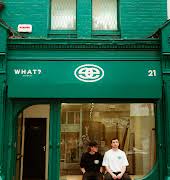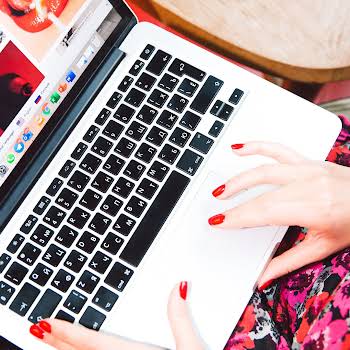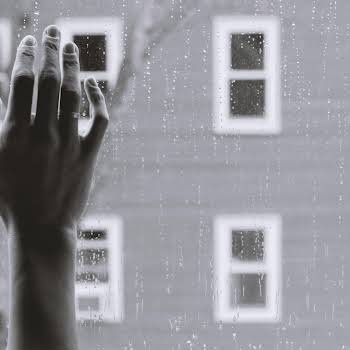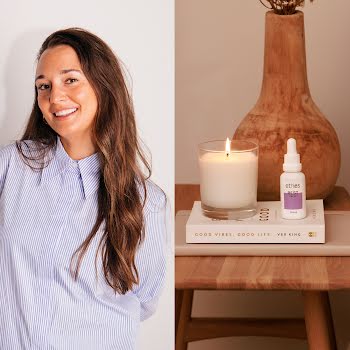
Lynn Enright: it’s time to say goodbye to January, there are brighter times ahead
As January comes to an end, Lynn Enright is hoping sensibly and with intent, that the future will be brighter.
Late last year, as I wrote my Christmas cards, I was slightly at a loss for what to say. I didn’t know then quite how bleak Christmas 2020 was going to be – nobody had mentioned the “new variant” yet – but it was obvious that it would be a festive season like no other we’ve known.
I wished everyone a Happy Christmas and signed off with the words “Here’s to 2021!”. That exclamation mark was doing a lot of work, as exclamation marks tend to do at the moment. Sending you love! Amid all of this! There are better times ahead! We can only hope!
As I celebrated the New Year (if you can call waiting till the clock struck midnight before shuffling off to bed remarkably sober and a little bit sad “celebrating”), I noticed there were the usual end-of-year messages and tweets knocking around Twitter and my WhatsApp – messages that said “Good riddance 2020!”, that kind of thing. It was the same gesture as my jaunty “Here’s to 2021!”, a vague hope that things would get better while acknowledging that the path to things actually getting better is long and windy and a little too complicated to consider at midnight.
Over the last few years, “Good riddance 20xx!” has become something of a New Year’s cliche. I seem to remember that it began in 2016, a year during which Prince and David Bowie died and Donald Trump was elected US President. The problem, of course, was that Donald Trump was actually sworn in in 2017 and his policies only made things worse in 2018, 2019 and 2020. In 2021, he went so far as to encourage an attempted coup, prompting unprecedented violence and chaos in Washington DC. So, we must conclude that saying “good riddance” to a year with a hopeful exclamation mark is an inevitably empty gesture.
Usually, the third Monday of each January is known as Blue Monday – a name dreamt up by a holiday company to sell flights that captured the public imagination and stuck. But now that we have had one of the bluest Blue Mondays of all, it might be a good idea to reconsider all those Blue Mondays gone by and all those Blue Mondays of the future and wonder if they are actually destined to be blue.
It’s obvious why we were so keen to see the back of 2020. It was a tough and strange and bleak year – for everyone. Even if a person was lucky, even if they did not lose someone they loved, even if they did not worry about how to feed themselves or their children as their income disappeared, they lived amid great loss and sadness. Everyone’s life contracted: got smaller, got lonelier, got more miserable. The joy of bringing home a new baby was tempered by fear and isolation. People who lived alone faced days without seeing anyone, months without a kiss or hug. A quick trip to the shops became an ethical and logistical conundrum.
It had seemed like we were about to enter into a straightforwardly better year: there was a vaccine on the way in 2021, after all. But the new calendar year has come with its own challenges. The coronavirus crisis worsened as hospital admissions hit a new high and the HSE came under enormous strain. In Ireland, we reckoned, once again, with a past of dangerous, sometimes fatal misogyny as the Mother and Baby Homes report was published and revealed the despicable cruelties visited upon women and their children.
But the new calendar year has come with its own challenges.
In the US, they executed the first woman on death row since 1953: Lisa Montgomery, who had been abused and raped as a child, was killed with a legal injection. In the UK, families who could not afford to feed their children were given food parcels that were an insult: cut-up bits of vegetables in cling-film were provided by private companies who were profiting from the Conservative government’s unwillingness to give the money directly to the people who needed it so desperately. Sometimes, this January, it has felt almost foolish to hold on to hope.
It turns out that we can’t just shut our eyes and hope. We have to hope sensibly. We have to hope with intent. If we can stay at home, we must do so, following the Covid regulations to a tee. We must acknowledge the toxic culture, created by Church and State, that led to women and their children being treated with contempt. We must consider the economic inequalities that mean some people have been unable to self-isolate safely. We must challenge the situation whereby women’s incomes and careers have been dented more significantly than men’s during the pandemic.
2021 is going to get better, that much feels true – but progress won’t necessarily be in a straight line and things won’t get better for everyone at the same time. There are brighter times ahead – longer, warmer days; trips to the seaside; drinks with friends; hugs that don’t feel fraught. But when this is all over, it would be a shame if we just said “good riddance” and moved on.
We’ve been through a life-changing event, together; let’s hope that it changes us for the better.
If you are struggling with your mental health, you can contact the Samaritans by calling 116 123 or emailing jo@samaritans.ie























